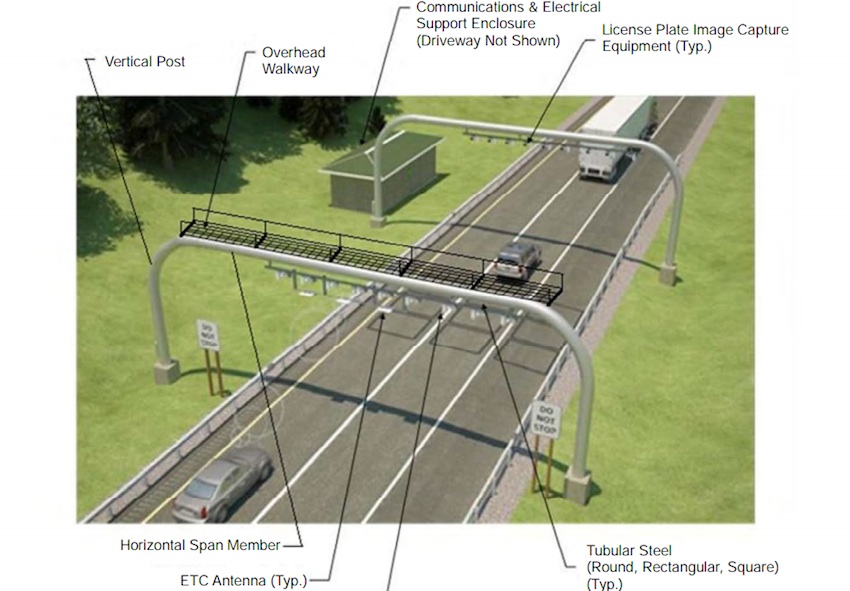No More Spare Change on State Highways?
Soon, drivers traveling along major highways in Massachusetts won’t have to worry about scrounging for change or receiving a ticket in the mail after sneakily trying to soar through the tolls on various state-owned roadways.
Starting Thursday, officials from the Massachusetts Department of Transportation will begin talking to the community as part of a series of public hearings about a proposal to undertake a project to replace the current tolling system with an All-Electronic Tolling System, or AET.
The first meeting in Boston, being held at the State Transportation Building on August 15, will include MassDOT representatives and a discussion led by the Massachusetts Environmental Policy Act staff regarding potential impacts of the project.
MassDOT is proposing to convert and replace the I-90 Western Turnpike and I-90 Boston Metropolitan Highway System interchange-based manual cash and electronic toll collection systems with a new system of tolling relying only on the AET.
A pilot-program for the project, which will do away with cash transactions, and rely on a system similar to the current E-ZPass program, will be launched on the Tobin Bridge starting in 2014. Following that, officials want to roll out additional AET systems throughout the state, with the goal of eventually doing away with the current program completely.
“For E-ZPass drivers, the system works essentially the same as today—except there are no toll plazas to navigate or E-ZPass Lanes to find. Tolls from the AET’s toll zones will be posted directly to their E-ZPass accounts and will appear on E-ZPass statements. Drivers without E-ZPass – Pay-By-Plate customers – will see tolls on invoices [which will be] accumulated for a configurable period of time and then mailed to vehicle owners for payment,” according to state officials. “For this added convenience, customers will pay a higher toll rate to cover the additional costs of license plate image processing and billing.”
If those invoices are ignored, they will become toll violations with increasingly serious consequences, according to officials.
Currently, bond financing funds construction and maintenance of the tolling roads, which includes the Tobin Bridge, the Western Turnpike, and the Metropolitan Highway System, secured by collecting money through a “barrier” system, as well as the use of the E-ZPass.
While the E-ZPass system has improved traffic conditions since it was first introduced, problems persist, especially during the holiday seasons, and now the state wants to do away with the cash-tolling system and replace it with all-electronic access instead to keep the flow of cars moving without incident.
The aim of the switch is to improve traffic flow through the interchanges, so backups are less likely to occur. State officials said it would also reduce the cost of operations, both in the short term and particularly over the long term.
The project would likely be rolled out in phases to reduce problems on the roadways, officials said. Three hearings about the project are scheduled throughout the month of August in various parts of the state.Officials want residents to attend the hearings to offer input, and further discuss what they see as advantages to the new system implementation and potential roll-out.
For a complete list of where the meetings will be held, and more information about the project, visit the state’s website.


